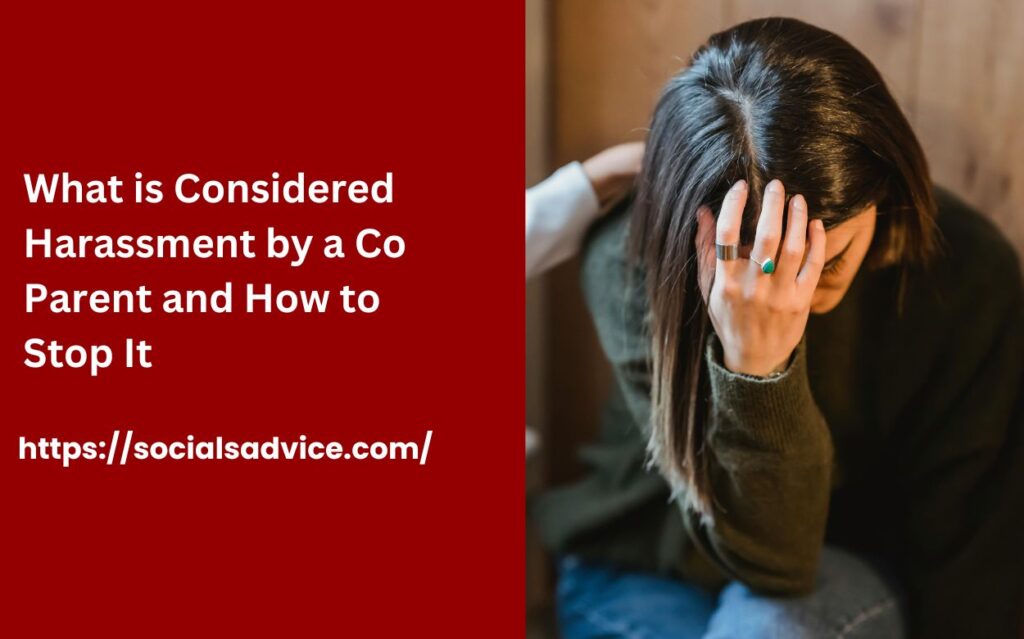
Co-parenting is a responsible and collaborative approach where both parents are involved in significant contributions to raising their children, regardless of their personal conflicts or frustrations.
At times, co-parenting meetings are caused by severe obstruction or resistance from the former parents. When your ex refuses to cooperate with you in a comprehensive engagement in co-parenting, so you should choose some productive and effective methods.
In this guide, you will better understand how you can effectively communicate, negotiate, or get to know your refusing ex in co-parenting.
Effective Strategies for Dealing with an Ex who Rejects Co-Parenting
When it comes to knowing what to do when your ex refuses to co-parents, you should always be responsible and precise with your ex-partner in your co-parenting matters. You should always choose methods that are more appropriate for the cooperative to ensure your children’s long-term support, distribution of property and assets, health care, and financial and emotional support.
Below are effective tips to help you deal with your ex who refuses to co-parents, read on!
Prioritize Children’s Well-being
When your ex refuses to co-parents with you, it leads to an argument and unexpected fight. Therefore, it’s important to avoid all those situations that can lead to the breakdown of the relationship and the ultimate reason for holding a co-parenting meeting.
Child support is an important factor that every co-parents should make a priority. Your children’s well-being is more important than your personal grudges, fights, frustration and anger. Thus, if the question of what to do when your ex refuses to be co-parenting is always on your mind, the best thing to do is to focus on the well-being of your children.
Establish Respectful Limits
Sometimes, people get frustrated during co-parenting period. They are very cheerful and may not work at all, especially for children. Always being angry or frustrated can lead to worse outcomes.
When the circumstances worsen, it can have a negative impact on your children lives. Will you suffer your children because of you? Of course. So, when your ex is refusing to co-parents with you, it is better to keep yourself calm to handle the whole conditions with great confidence, patience and wisdom.
Establish Respectful Boundaries
When you set clear boundaries between you and your spouse on various grounds, it will help you prevent co-parenting conflicts from escalating because of your ex’s denial and toxicity.
It’s the first priority for any parenting relationship to have clear insight into their behavior, especially when the situation is dire. You should always make sure to set clear and respectful boundaries without expecting anything from your ex to help your children achieve a healthy lifestyle.
Engage in Effective Communication
When you see that your ex is not supporting a healthy and legal co-parenting approach, it is the best to avoid face-to-face meetings to prevent your disrespect. You can use indirect interactions on co-parenting communication applications and messages.
This will be really productive for you, especially when your ex shirks responsibilities and outright refuses to co-parents with you. You should be clear, precise, concise and respectful when communicating with your ex, as this is the best way to avoid dispute, misbehavior and arguments.
Seek Guidance from a Legal Expert
When you notice that your ex is constantly refusing to co-parents with you, it is best to seek legal advice. With this, you can better handle the whole contentious issue of co-parenting – which can be made all the more toxic by a toxic ex.
With legal help or advice, you can significantly prevent the negative effects that can harm your child’s overall health. When you find that your ex is constantly refusing to take responsibility – even violating court orders – the best thing you can do is to take care of your children long-term. Seek legal advice to ensure a healthy, overall well-being.
Set Up Healthy Limits
As you move on from a previous romantic relationship to being a good parents, don’t forget to determine your comfort level around others, including your ex. The thing is, people going through a complicated divorce can usually be in the same room together because of different conflicts. Finally, failure to find a common language can result in denial from the co-parents.
To improve your personal relationship with your ex and find mutual agreement on child-related issues, outline your boundaries clearly and respectfully. Tell your ex-husband/wife what is acceptable in your life and what is not.
For example, inform your partner that you can only contact them via email or the parenting portal. If you use an all-in-one communication service for co-parenting, you’ll be able to prevent your ex from claiming they “didn’t get the message”. Also, make sure to block him on social media and increase your privacy settings. Indeed, the less face-to-face communication you do, the less conflict you will encounter.
Conclusion
Wrapping up the content, it’s understood that co-parenting with uncooperative parents is challenging. Divorce or separation is not at all a pleasant situation for those who are more concerned about their children and their children’s future.
Therefore, if you are faced with a divorce or legal separation, you should always make it clear to yourself that you should be responsible for co-parenting with your partner, especially an uncooperative ex. The one who refuses to co-parents with you.
So, in this guide, you can better understand what to do when your ex refuses to co-parents with you in child support, health care, and their overall well-being. You should also always focus on child support and your own health, so that you can effectively communicate with your refusing ex-co-parents.
FAQs
How do you deal with an uncooperative co-parents?
When you have an unsupportive co-parents, prepare yourself to accept it. Next, it’s best to set healthy boundaries, which can help you move forward with a parenting plan, cooperation and communication for child custody, visitation and health care.
How do I get my ex to be a co-parents?
When you set healthy boundaries and have clear lines of communication, you can better convince your ex to co-parents. Make sure that you are focusing on the specific issues of the children in a respectful and correct manner of interaction.
How do you respond to a difficult co-parents?
Be unambiguously kind and respectful to your co-parents. Set boundaries that are comfortable for you and maintain them through ups and downs, respect the boundaries they request. Do not react to weather changes, especially in front of children.
How do you deal with an impossible ex?
The most important thing you can do to better deal with your impossible ex is to avoid negative conversations, face-to-face meetings, personal and behavioral dispute – and put your children first.
How do you set boundaries with an ex while co-parents?
It is important that you be supportive of your co-parent’s child. Also, keep your children away from personal conflicts. Be professional and avoid rudeness when communicating with each other.
When not to take an ex back?
When you feel insecure, disrespected, criticized and abused by your ex, you should not take your ex back. This can result in a major dispute between spouses, which can negatively affect the health of your children.


